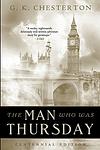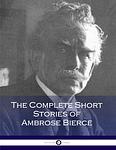The Greatest "Psychological, Satire, Speculative Fiction" Books of All Time
Click to learn how this list is calculated.
This list represents a comprehensive and trusted collection of the greatest books. Developed through a specialized algorithm, it brings together 305 'best of' book lists to form a definitive guide to the world's most acclaimed books. For those interested in how these books are chosen, additional details can be found on the rankings page.
Genres
The Psychological genre of books typically explores the inner workings of the human mind and emotions, often delving into complex and sometimes disturbing psychological states. These books may focus on mental illness, trauma, relationships, or personal growth, and often challenge readers to confront their own beliefs and perceptions. Psychological books may be suspenseful, thought-provoking, and emotionally intense, offering readers a deep and often unsettling glimpse into the human psyche.
Satire is a genre of literature that uses humor, irony, and exaggeration to criticize and ridicule human vices, follies, and shortcomings. It is a form of social commentary that aims to expose the flaws and absurdities of society, politics, and culture. Satirical books often employ sarcasm, wit, and parody to challenge the status quo and provoke thought and reflection in readers. Satire can be both entertaining and thought-provoking, and it has been used throughout history as a powerful tool for social and political critique.
Speculative fiction is an umbrella genre encompassing narrative fiction with supernatural or futuristic elements. This includes genres such as science fiction, fantasy, horror, supernatural fiction, superhero fiction, utopian and dystopian fiction, apocalyptic and post-apocalyptic fiction, and alternate history. The unifying factor of speculative fiction is its departure from the narrative constraints of reality, exploring imaginative and often profound questions that challenge our understanding of the world and our place within it. These stories often delve into themes like the human condition, social commentary, and the exploration of philosophical and ethical dilemmas through the lens of the fantastical or the yet-to-be-possible. By pushing the boundaries of the known, speculative fiction invites readers to consider the myriad possibilities of existence and the potential consequences of our actions in worlds that are, at once, vastly different from and eerily similar to our own.
Countries
Date Range
Reading Statistics
Click the button below to see how many of these books you've read!
Download
If you're interested in downloading this list as a CSV file for use in a spreadsheet application, you can easily do so by clicking the button below. Please note that to ensure a manageable file size and faster download, the CSV will include details for only the first 500 books.
Download-
1. A Clockwork Orange by Anthony Burgess
This novel follows the life of a violent young man named Alex, who is part of a youth subculture in a dystopian future England. Alex and his gang engage in a nightmarish spree of rape, assault, and robbery, until he is arrested and subjected to a psychological experiment by the government to "cure" him of his violent tendencies. The novel explores themes of free will, morality, and the nature of evil, while using a unique slang language invented by the author.
The 87th Greatest Book of All Time -
2. The Man Who Was Thursday by G. K. Chesterton
"The Man Who Was Thursday" is a metaphysical thriller that revolves around a poet turned detective who infiltrates a secret society of anarchists in London. Each member of the society is named after a day of the week, and the protagonist becomes 'Thursday.' As he delves deeper, he discovers that the other members are also undercover detectives, each unaware of the others' true identities. The narrative explores themes of order and chaos, faith and unbelief, with a surprising twist regarding the identity of the society's leader, 'Sunday.'
The 592nd Greatest Book of All Time -
3. Grendel by John Gardner
"Grendel" is a thought-provoking novel that retells the epic Beowulf from the perspective of the monster, Grendel. The book explores themes of existentialism, morality, and the nature of humanity as Grendel navigates his lonely existence and interacts with various characters, including the heroic Beowulf. Through his introspective musings, Grendel challenges traditional notions of good and evil, ultimately questioning the purpose and meaning of life.
The 1864th Greatest Book of All Time -
4. The Glass Bees by Ernst Jünger
"The Glass Bees" is a novel set in a future dystopian society, where technology has advanced to the point where robotic bees are being used for honey production. The story follows a former cavalryman who, desperate for employment, accepts a job from a powerful technocrat to test out these mechanical bees. As the protagonist gets more involved in the technocrat's world, he begins to question the morality and implications of such advancements, leading to a deep exploration of the intersection between technology and nature, and the potential consequences of unchecked technological progress.
The 2443rd Greatest Book of All Time -
5. Camp Concentration by Thomas M. Disch
In this speculative fiction novel, the story unfolds in a dystopian future where the U.S. government, engaged in an unwinnable war, turns to unethical experiments to enhance human intelligence. Prisoners are injected with a syphilis strain designed to boost their intellect while shortening their lifespan. The narrative, presented through the journal entries of a conscientious objector who becomes an inmate and an observer of the program, explores the moral and philosophical implications of sacrificing humanity for the sake of intellectual advancement. As the experiment progresses, the heightened intelligence of the inmates leads to unforeseen consequences, challenging the very nature of power, knowledge, and the human condition.
The 3202nd Greatest Book of All Time -
6. The Complete Short Stories Of Ambrose Bierce by Ambrose Bierce
"The Complete Short Stories of Ambrose Bierce" is a collection of gripping and thought-provoking tales that showcase the author's mastery of the short story form. Bierce's stories delve into the dark recesses of the human psyche, exploring themes of war, death, and the supernatural. With his sharp wit and incisive writing style, Bierce crafts narratives that are both entertaining and deeply unsettling, leaving readers pondering the complexities of the human condition long after they have finished reading.
The 3791st Greatest Book of All Time -
7. The Possibility Of An Island by Michel Houellebecq
The novel explores the life and thoughts of a successful comedian who, disillusioned with the superficiality and decay of human relationships in a hedonistic society, becomes involved with a cult that seeks immortality through cloning and genetic manipulation. As the narrative alternates between the comedian's experiences and the reflections of his future cloned descendants, it delves into themes of existential despair, the search for meaning, and the consequences of eternal life. The story weaves a bleak and satirical tapestry of humanity's obsession with youth, sex, and death, ultimately questioning the very nature of human progress and happiness.
The 8200th Greatest Book of All Time -
8. Haunted by Chuck Palahniuk
"Haunted" is a novel composed of 23 stories, all told by people who have answered an ad for a writer's retreat. The individuals are locked inside a theater for three months, with no connection to the outside world. As time goes on, they begin to starve, go mad, and resort to violence. Each character's story reveals their darkest secrets and fears, creating a chilling and disturbing narrative.
The 8500th Greatest Book of All Time -
9. Limbo by Bernard Wolfe
"Limbo" is a thought-provoking science fiction novel set in a post-apocalyptic future where the world has been ravaged by nuclear war. In this society, the concept of disarmament has been taken to an extreme, with individuals voluntarily amputating their limbs and relying on robotic prosthetics as a means to prevent further violence. The narrative follows the journey of a psychologist who, after returning from a self-imposed exile, grapples with the moral and ethical implications of this new form of self-mutilation, which is seen as a path to personal and global peace. The book delves into themes of human nature, the psychology of violence, and the quest for utopia, challenging readers to consider the price of peace and the nature of humanity's relationship with technology.
The 9875th Greatest Book of All Time -
10. Advise and Consent by Allen Drury
This political novel delves into the world of U.S. Senate politics. The plot revolves around the contentious confirmation process of a controversial Secretary of State nominee, who is suspected of having communist sympathies. As the Senate battles over the nomination, the novel reveals the complex web of political maneuvering, personal secrets, and power struggles among the country's leaders. The story provides an insightful exploration of American politics, ethics, and the consequences of past actions.
The 10138th Greatest Book of All Time
Reading Statistics
Click the button below to see how many of these books you've read!
Download
If you're interested in downloading this list as a CSV file for use in a spreadsheet application, you can easily do so by clicking the button below. Please note that to ensure a manageable file size and faster download, the CSV will include details for only the first 500 books.
Download








